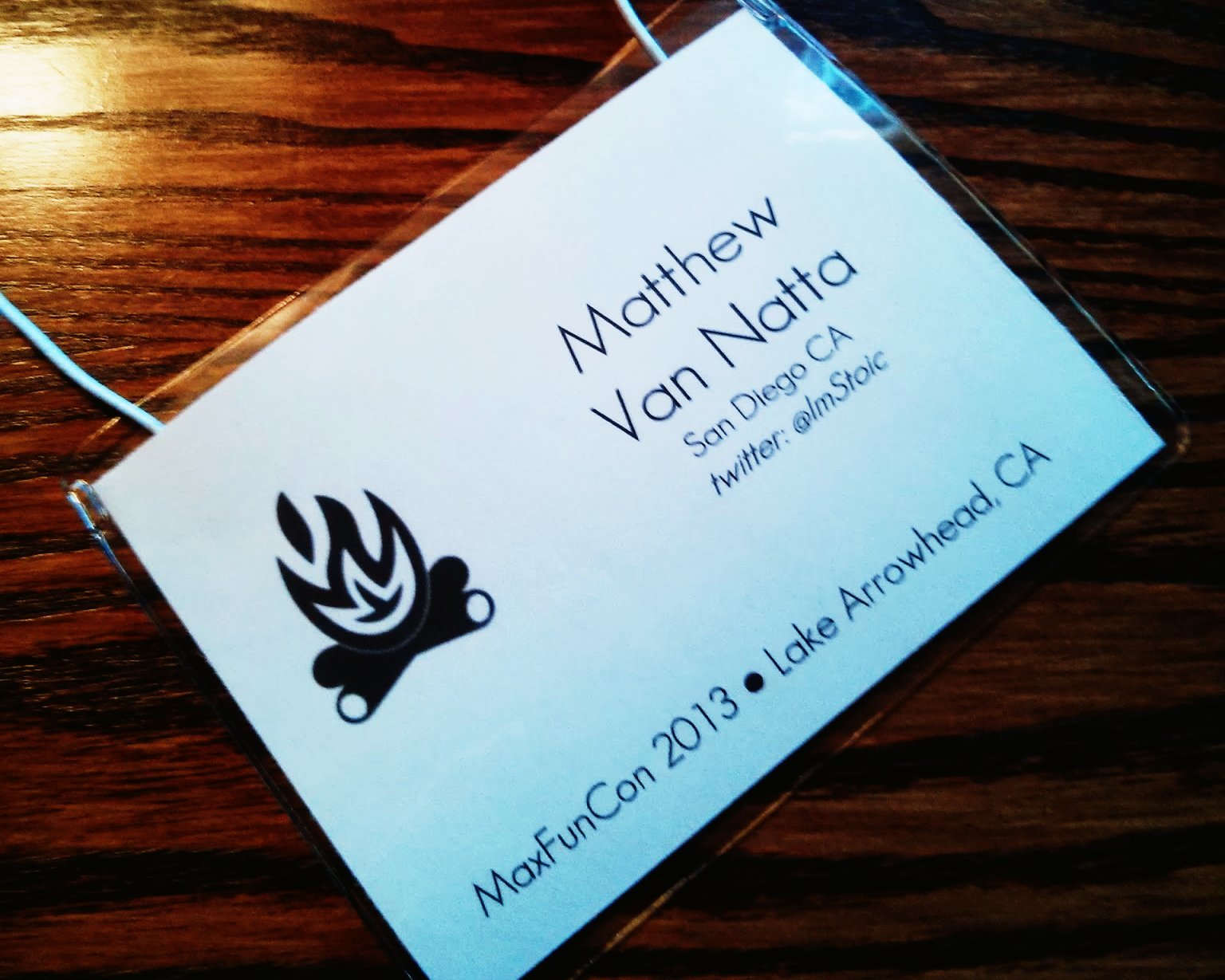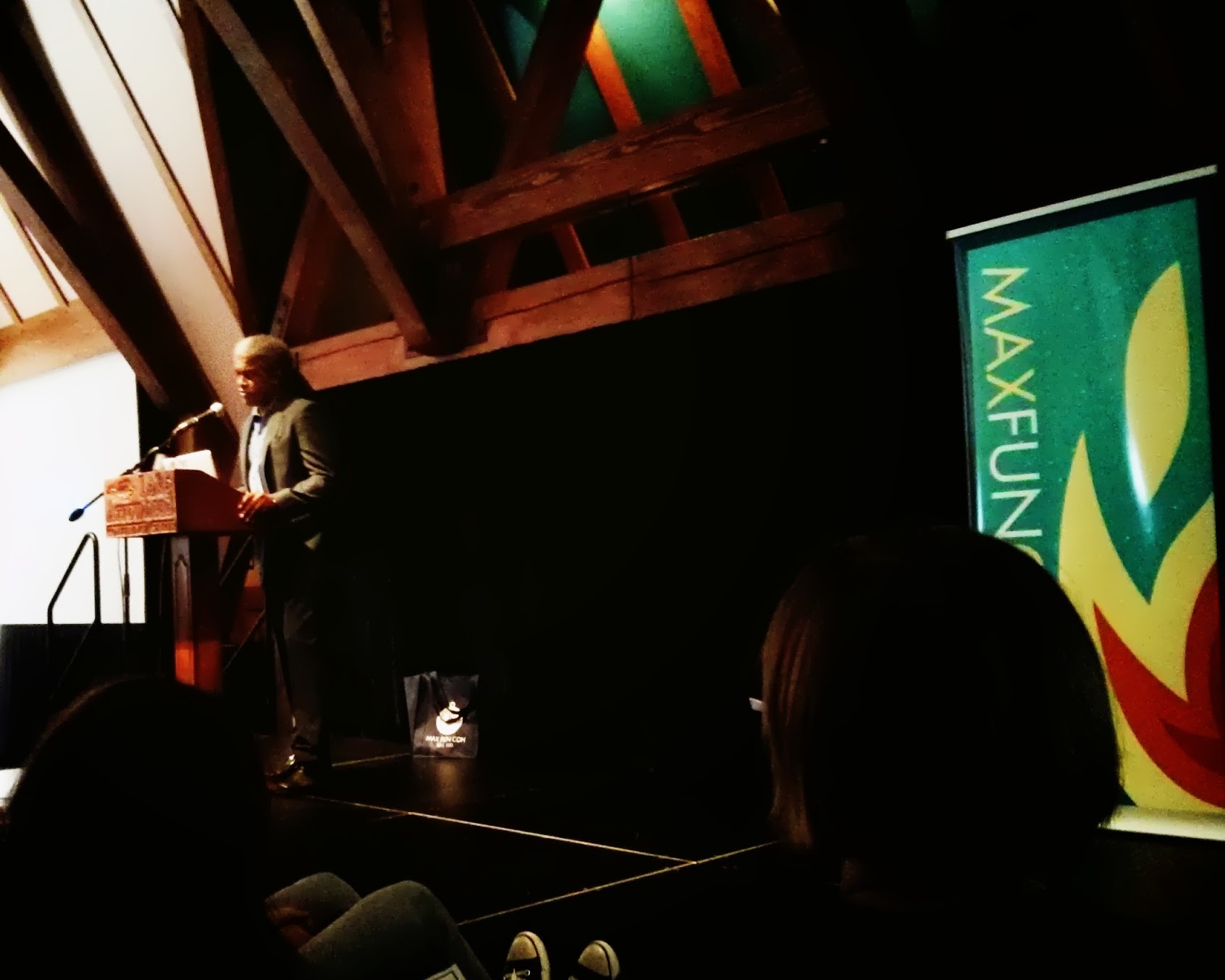Every MaxFunCon begins with a benediction. Well, it begins with check-in and a cocktail hour, but eventually we get around to officially kicking off the weekend. Since we use the word "benediction" I should point out that MaxFunCon is not a religious event. It's a celebration of all things awesome put on by the podcast baron, Jesse Thorn. However, despite its sometimes irreverent nature, MaxFunCon has gained the potency of a holy event, at least for me. It's a celebration of the human spirit; a reminder that people are good and joyful, that the world is mysterious and beautiful, and that a priest, Jeff Buckley, and my godless heart can share a hallelujah in equal measure.
Every year John Hodgman leads our group in a a few songs accompanied by his ukulele playing. The song, Surrounded by Friendship, is sung every year. I suppose it's the theme of the weekend. On the second year I attended, Hodgman introduced us to a song that I now sing near daily, as a sort of hymn. Resist the Tide, by Cynthia Hopkins has become so important to me that I have asked Christy to be certain it is played at my funeral. Oh, and this year Hodgman played We're in the Money while dressed as Ayn Rand. I did say MaxFun is about awesome.
A root personal concept in my life is the pseudoiterative. I plagiarized and adapted the idea from a Kim Stanley Robinson novel that I've mentioned once before. The idea is based in the surety and art of life's patterns and a desire to cultivate an awareness of both the repetitions and surprises of the present moment. MaxFunCon allows me a yearly appreciation of the pseudoiterative. The daily schedule is the same, but it's filled with new activities. I share time with friends I've come to know, while meeting new faces as well. It's a joyful experience that can be simultaneously frantic and meditative.
A rich life requires us to build meaning into whatever frame fortune gives us. Rituals, whether daily or yearly, are important to telling the story of ourselves to ourselves. For three years I've had the pleasure of partaking in MaxFunCon. I won't be there next year. My daughter is going to arrive soon and I'll be busy getting to know her. Maybe she'd be the perfect nine month old to visit Lake Arrowhead. Or maybe she hates nerds? I can't chance it.
I write this to document my love of MaxFunCon and to say goodbye for now. It's played a big role in my life, and my wife's. I'm glad my baby was able to hear everyone's singing in the womb. I hope I get to attend again. If not, I'll remain inspired to seek out and celebrate the creative things in life. I will also pick up a bottle of Malort next time I'm in Chicago.



